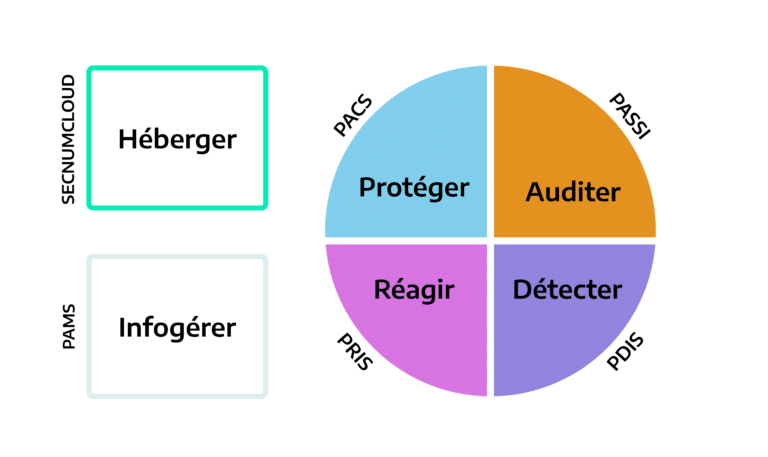In a world where unforeseen events are multiplying and organizations must face increasingly diverse crises, crisis management is emerging as a crucial skill. Whether in response to a natural disaster, a cyber attack, or reputation issues, the way a company reacts can determine its success or demise. Becoming an expert in crisis management is not simply a matter of luck, but of acquiring specific skills through specialized training. This article explores the key elements that will allow you to build a successful career in this rapidly expanding field.
Table des matières
ToggleAnticipate to Manage Better: The Foundation of Crisis Management
Prevention and anticipation play a vital role in crisis management. Acquiring solid risk expertise requires learning to identify the warning signs of a crisis. This goes well beyond a mere reaction to events; it is about establishing systems and processes to identify your organization’s vulnerabilities.
Crisis management training teaches you to develop proactive action plans aimed at minimizing the potential impacts of a crisis. For example, companies like IBM and McKinsey provide case studies on how to implement effective crisis management solutions in various circumstances. This will help you develop your analytical skills.
The Key Steps of Anticipation
- Risk Assessment: Identify potential threats to your organization.
- Contingency Plans: Develop possible responses to these threats.
- Team Training: Make staff aware of crisis management procedures.
- Clear Communication: Establish protocols to quickly inform all stakeholders.

Real-Time Adjustments and Optimization of Information Flow
When a crisis occurs, it is essential to adapt strategies and manage information flows effectively. This requires implementing what you have learned during your training and pushing your preparation and response to its peak. Many professionals in the field assert that the ability to make informed decisions in emergencies is what distinguishes a good manager from an excellent one. Stress and pressure can cloud your judgment, which is why being prepared is crucial.
Technologies such as event management systems provide real-time data that help experts make informed decisions. These tools allow for coordinated efforts and ensure a rapid and coherent response.
Resilience and Adaptation: Building a Strong Corporate Culture
Another fundamental pillar of crisis management is organizational resilience. Companies must not only be able to face a crisis but also recover from it and strengthen afterward. This underscores the importance of management strategies adopted in advance, which must be integrated into the very culture of the company.
Developing a Resilience Culture
- Continuous Training: Staff must be regularly trained on new trends in crisis management.
- Transparent Communication: Encourage an environment where information flows freely.
- Post-Crisis Evaluation: Analyze what worked and what can be improved.
- Collaborativity: Create multidisciplinary teams to foster diverse ideas.
The company should be viewed as a living system, capable of adapting to changes and contingencies. By fostering this flexibility, not only does the organization become stronger, but it also enhances the trust of stakeholders, from employees to clients and partners.
Careers in Crisis Management: Professions and Prospects
Careers in crisis management, which revolve around several specialties, emerge as real opportunities. Whether you are passionate about communication or data analysis, there are numerous positions that will allow you to contribute your part to the cause. Some organizations seek human resources with effective crisis management solutions.
Key Roles in Crisis Management
| Position | Responsibilities | Required Skills |
|---|---|---|
| Crisis Communication Manager | Coordinates and manages all communications related to a crisis. | Communication mastery, diplomacy, stress management. |
| Risk Management Analyst | Evaluates risks and proposes solutions to minimize their impact. | Data analysis, critical thinking, knowledge of regulations. |
| Resilience Consultant | Helps companies develop long-term resilience plans. | Strategic, knowledge of technologies, training skills. |
The diversity of roles available in this field illustrates the growing importance of crisis management in a professional environment. Continuous training is particularly essential, with many training centers offering specific courses on crisis management, allowing for training in crises and skills enhancement as advancements in the field arise.
Open Conclusion: Making Crisis Management More Effective for a Secure Future
With the intensification of threats, whether natural or technological, it becomes imperative for companies to prepare adequately. The combination of specific training, a corporate culture focused on resilience, and practical applications of crisis management solutions plays a decisive role in an organization’s ability to navigate through the most complex storms. Learning to anticipate and react thus becomes not only a matter of survival but also of optimization and innovation for a secure future.

For more information on careers in crisis management, click on this link: Careers in Crisis Management.





















